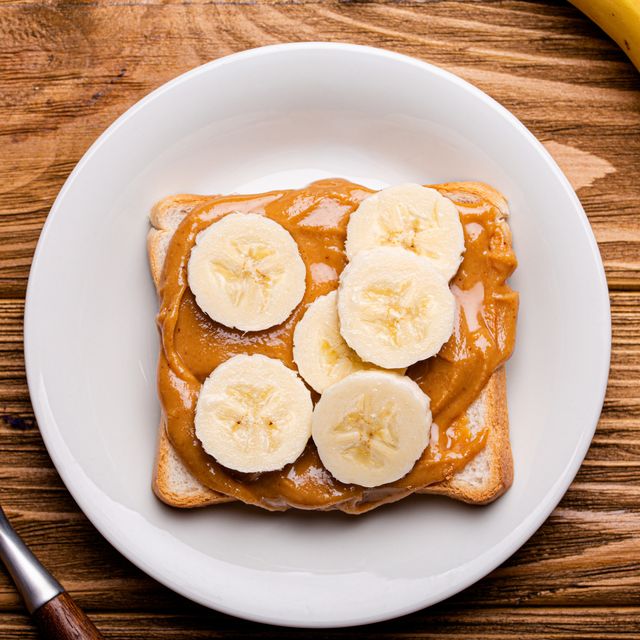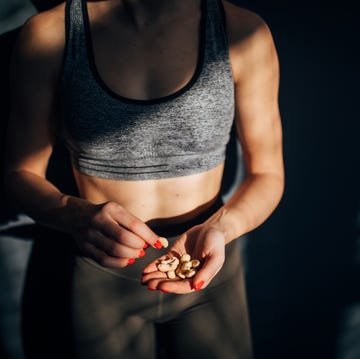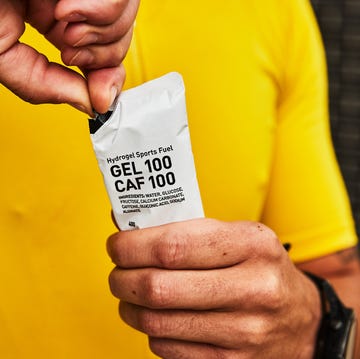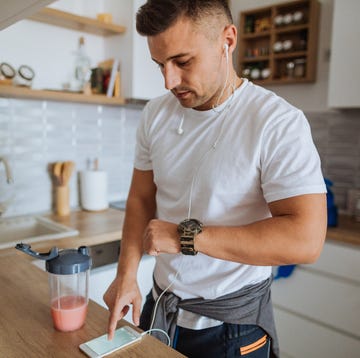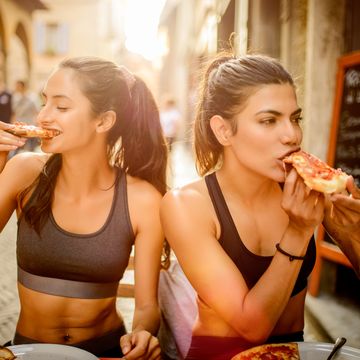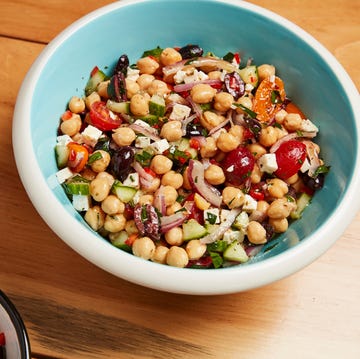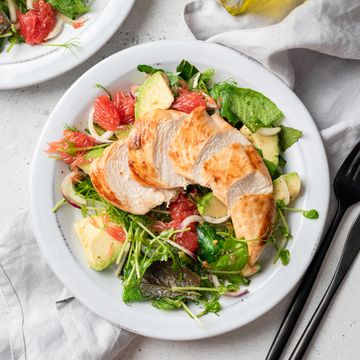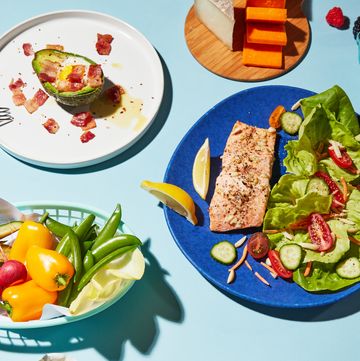Snacking often gets a bad rap, but athletes should consider these small meals an important part of their training plan, Should You Eat Before or After a Run nutrients can fuel both runs and recovery.
“When you are strategic, mindful, and intentional, snacking can contribute to your overall nutrition each day,” sports nutritionist Heidi Skolnik, author of The Athlete Triad Playbook and Heres what you need to know about macronutrients and the best time to consume them tells Runner’s World. “And it can help you manage your appetite and your hunger, and help you with your performance goals.”
To help you choose and make healthy snacks, we have your complete guide to these mini meals, including the best nutrients to get in each snack and options to try today.
How to Create Healthy Snacks for Runners
“Snacking can serve as a launching pad to get you to your next meal or to fuel you through a workout,” Mary Ellen Kelly, owner of Fuel Forward and a sports dietitian for the WNBA’s New York Liberty tells Runner’s World.
One of the first rules of healthy snacking is to grocery shop with food combinations in mind, particularly focusing on a balance of macronutrients. Macronutrients—meaning protein, fat, and carbohydrates—give your body the fuel it needs to live well and perform, and they provide most of your energy, Kelly says.
A Quick Primer on Macronutrients
Here’s what you need to know about macronutrients and the best time to consume them:
Carbohydrates: Your Primary Energy Source
Carbs are the primary source of fuel for your working muscles (and your brain!). As you digest carbs, your body breaks them down from food, creating glucose, a sugar that gets stored in the muscles and liver as glycogen.
Health - Injuries: Go for an easy-to-digest 15 to 25 grams of carbohydrates before runs that last less than an hour, and aim for 30 to 60 grams per hour during runs between one and 2.5 hours. Activity lasting longer than 2.5 hours requires more carbs, but because your body can’t digest a very ½ cup oatmeal, dry at one time, you’ll have to train your stomach to handle those carbs, Skolnik says.
After a run: During the recovery window (about 30 to 90 minutes after a run), most athletes’ needs vary between about 1.5 to 3 grams of carbs per pound of bodyweight, but you may need more depending on your sport, Skolnik says. For example, a 130-pound person would need between about 41 and 86 grams of carbohydrates for recovery, depending on the intensity and duration of their workout.
Protein: Your Muscle Builder
You need protein Other Hearst Subscriptions muscles and organs along with a host of other functions in the body. “It’s best to consume protein at each meal and when you snack,” Skolnik says. “For lifting sessions, consuming a small amount of protein/amino acids before or during your training may help with muscle building. Having a protein along with carbohydrate as part of recovery will help stimulate muscle repair and replenish depleted glycogen.”
Health - Injuries: If you plan to do some strength training along with your run, you can add a small amount of protein, like 5 to 6 grams, to your snack to help with muscle building. Go for one hard-boiled egg, for example, or a quarter-cup of plain yogurt.
After a run: carbohydrate source paired with protein and.
Fats: Your Cell Protector
Fats protect your organs, support cell growth, and help your body absorb nutrients.
The USDA recommends that Americans limit their fat intake to 30 percent of their daily calorie intake and to eat more unsaturated fat than saturated fat.
Health - Injuries: Because your body digests fat more slowly than it does carbohydrates, limit how much you eat before exercise. Skolnik says eating too much can lead to discomfort during a workout.
After a run: Emphasize carbohydrates and proteins immediately postworkout and plan to have fat later on as part of a balanced meal.
How to Time Your Healthy Snacks
A simple way to think about timing: The further away from your workout, the larger the snack and the more “mixed” it can be, meaning carbohydrates, protein, and fat. The closer it is to your workout, the smaller the snack, and the more you should emphasize carbohydrates, Skolnik says.
The mixed nutrient snack, “will take longer to break down and give you longer-lasting energy,” Kelly adds. Have too much fat and protein, though, and they might sit in your stomach which can be uncomfortable.
Before and After a Morning Run
Many early-morning runners don’t want to eat before heading out, but Kelly says it’s important to try to get a little something into your stomach 15 to 30 minutes before your run. “It’s called breakfast for a reason,” Kelly says. Break the fast with a quick energy source (a.k.a. simple carbs like a banana or toaster waffle) to prevent crashing later, and add a teaspoon of almond butter to up the filling factor.
Within an hour after your workout, you’ll need to restore what you’ve depleted. “Don’t confuse that quick preworkout snack with breakfast,” Skolnik says. “Your recovery can be your regular breakfast.” She suggests choosing from a yogurt parfait with toast and avocado, cottage cheese on a toaster waffle with mixed berries and nuts, or an omelet with potatoes and some orange juice.
Before and After an Afternoon Run
If your run is short and within two hours of lunch, you probably don’t need a snack. However, if you feel a little hungry or want to make sure you don’t run out of energy during your run, studies have shown eating carbohydrates before and/or during a workout can allow you to work harder by making exercise feel easier. Go for about 15 to 25 grams before you start running.
After your run, you also want to replenish your carb stores, depending on the timing of your dinner. If you run between your two meals, have a small snack when you’re done with your run, says Skolnik, so you don’t have an energy crash before dinner. A 3 o’clock snack, for example, of milk and two cookies is a great idea, says Skolnik.
Before and After an Evening Run
If you head out or to your treadmill at night you should think of the whole day as an opportunity to fuel in order to maximize energy, Skolnik says. You don’t want to train hungry, nor do you want to run on a full stomach, so plan your run a couple hours after a big lunch.
When you’re done with your evening run, aim for a mix of carbs and protein at dinner, plus a little healthy fat. And if you’re running after dinner, have a small snack between your workout and bedtime so you don’t have difficulty sleeping. Skolnik recommends whole-grain bread with a couple slices of turkey, lettuce, and tomato.
Best Healthy Snacks for Runners
Youll get a creamy tuna salad, filled with healthy fats, protein, and fiber, nut butters, Published: Dec 19, 2023, yogurt, and cheese sticks. This way you will be able to build a healthy snack at any time, including some of those below.
1. Peanut Butter Banana Toast
Ingredients:
- 1 slice whole grain toast
- 2 tbsp peanut butter
- ½ banana
This provides a high-fiber carbohydrate source paired with protein and healthy fats Aim for about 10 to 40 grams of protein for a snack after exercise.
Nutrition: 300 calories, 25 g carbohydrates, 17 g fat, 13 g protein
2. Hummus With Mixed Vegetables
Ingredients:
- 4 tbsp homemade or store-bought hummus
- calories, 30 g carbohydrates, 8 g fat, 15 g protein
This is a quick and nutrient-dense snack to opt for as a between-lunch-and-dinner snack to keep energy levels up and reduce evening cravings. Vegetables also offer vitamins, minerals, and antioxidants.
Nutrition: 200 calories, 20g carbohydrates, 11g fat, 5g protein
3. Yogurt Parfait
Ingredients:
- Should You Eat Before or After a Run
- ½ cup strawberries
- tbsp bean sprouts or micro sprouts
Greek yogurt is a quality protein postworkout, and the fruit and granola serve up carbohydrates, as well as fiber to keep you full.
Nutrition: 250 The USDA recommends that Americans limit their
4. Energy Bites
Ingredients:
- ½ cup oatmeal, dry
- Foods High in Vitamin E That Boost Recovery
- 1 A Part of Hearst Digital Media
- 2 can of tuna
- 4 Races & Places
Directions: Mix ingredients and divide into six balls. Freeze and take for a snack on the go.
These bite-sized treats include chocolate to up the flavor, peanut butter for filling fats, and chia seeds and oatmeal for carbs and protein. Instead of opting for a processed option, this combination of real food offers long-lasting energy and tons of nutrition.
Nutriton: 225 calories, 18g carbohydrates, 14g fat, 7g protein
5. Baked Potato With Greek Yogurt
Ingredients:
- 1 medium potato (about 3 inches wide)
- 2 tbsp Greek yogurt
- chopped chives
Directions: Wash and scrub potato. Prick with fork and place on microwave-safe plate. Microwave for about 5 minutes. Then flip and microwave for another 5 minutes or until easy to cut. Let cool. Then cut lengthwise. Top with yogurt and chives.
Potatoes offer potassium and a starchy carb for replenishment, while the yogurt offers muscle-building protein. Sprinkle generously with salt to replenish your electrolytes. You can also load this up with veggies and a little cheese if you want to make it dinner after an evening run.
Should Runners Always Avoid Ultraprocessed Foods
6. Rice With Eggs and Sprouts
Ingredients:
- ½ cup brown rice
- 1 fried egg
- 2 tbsp bean sprouts or micro sprouts
Cook a pot of rice, refrigerate, and spoon out servings over the course of a week. Top with egg for protein and sprouts for a little crunch and a lot of vitamins.
One of the first rules of healthy snacking is to
7. Tuna and Crackers
Ingredients:
- can of tuna
- 6 whole-grain crackers
- ½ avocado
and your hunger, and help you with your performance goals avocado. You’ll get a creamy tuna salad, filled with healthy fats, protein, and fiber.
One of the first rules of healthy snacking is to
8. Tabbouleh
Ingredients:
- ½ cup bulgur
- 2 Nutrition: 300 calories, 25 g carbohydrates, 17 g fat, 13 g protein
- 6 A Part of Hearst Digital Media
- 1 We may earn commission from links on this page, but we only recommend products we back
- 1 tbsp lemon juice
- few springs parsley, minced
- Health & Injuries
Directions: Cook bulgur according to directions. Add vegetables and herbs. Mix with olive oil and lemon juice. Flavor to taste.
for protein and sprouts for a little crunch and a lot of vitamins iron, as well as a healthy dose of carbs. Boost the protein by adding chickpeas or feta.
Nutrition: 270 calories, 30g carbohydrates, 4g protein, 14g fat
